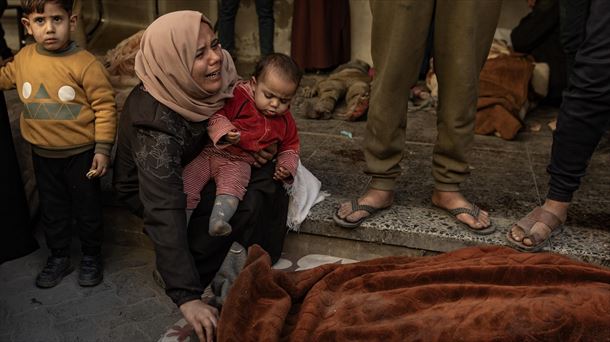Scandinavian countries, such as Norway, Denmark and Sweden, once again top the rankings of countries with the best conditions to guarantee a free press; On the other hand, Syria, Afghanistan and China are at the bottom. Spain and France rise six and three positions respectively.
The NGO Reporters Without Borders (RSF) has warned that political authorities have become one of the leaders main threats to the press freedom around the world due to the increase in governments and authorities who “fail in their role of ensuring an exemplary framework for journalistic practice” and access to reliable information.
This is clear from the latest World Press Freedom Classification that the organization has drawn up on the occasion of the International Day of Press Freedom. The report emphasizes that the political aspect, one of the five indicators that play a role in the report, has declined the most worldwide in the past year.
“RSF notes a worrying deterioration in support and respect for media autonomy, as well as an increase in support and respect for media autonomy Busy exercised by states or other political actors,” the document said.
RSF’s World Press Freedom Index is based on five fundamental pillars: the political indicator, the economic indicator, the legal framework, the socio-cultural context and the safety of journalists. The general decline in the political aspect affects most countries, even those that enjoy greater freedom of the press.
This is the case for the Scandinavian countries – Norway, Denmark, Sweden, Iceland and Finland – which, with the exception of Iceland, are among the top eight and together with the Netherlands, Estonia, Portugal and Ireland the best rating in the latest RSF report. Former democracies such as the United Kingdom (23rd place) or the United States (55th place) are displaced from the top places.
Spain has risen from 36th to 30th place, although among the five indicators that make up this classification, the politician “falls” a little more than three points, with a world average of 7.6 points. France It also improves, from 21st to 24th.
On the other hand, the last positions on the list are occupied by Afghanistan, which “has not stopped suppressing journalism” since the return of the Taliban in August 2020; Syria, which has become “a lawless zone for the media” and where record numbers of journalists are being detained. Finally, Eritrea ends the RSF table with the worst rating.
Wars and elections
One of the events to take into account to understand this situation is the war in the Gaza Stripunleashed after the Hamas attacks on Israeli territory and the Israeli offensive against the Palestinian enclave.
The report recalls that among the 34,400 people murdered, most of whom are minors and women, more than 100 journalists and information professionals killed in Israeli bombings, more than twenty of them while doing their work.
On the other hand, the Russian invasion of Ukraine continues to mark a negative trend in the area of press freedom, and although in this case RSF does not highlight the number of journalists killed by the conflict, it does highlight alert to the influence of Russia and Belarus in the countries of Eastern Europe and Central Asia when account information.
According to RSF, “media censorship has intensified” in both regions and there has been an “astonishing” imitation of Russian acts of repression, especially in Belarus, Georgia, Kyrgyzstan and Azerbaijan. “Russia’s influence extends to Serbia, where pro-government media spread Russian propaganda and authorities threaten exiled Russian journalists,” the NGO denounces.
But outside of both conflicts, RSF has emphasized the high number elections around the world, not only in 2024 – billed as “the biggest election year in history” – but also in 2023. In fact, last year, especially in South America, was “self-proclaimed predators of press freedom.”
Special mention on this point to the chairman of ArgentinaJavier Milei, who in one of his first actions at the head of the country and in a “symbolic and worrying” act, announced the closure of Télam, the largest news agency in Argentina. Turkey, which has also held elections in recent months, is one of the countries that continues to “lose points” in the rankings.
Other countries are trying to control information through social networks and to do that they are putting journalists in prison for publishing news through this channel, restricting access to the platforms or directly removing their content. China and windboth at the bottom of the table of countries with the greatest press freedom, stand out in this section.
Source: EITB
I’m Wayne Wickman, a professional journalist and author for Today Times Live. My specialty is covering global news and current events, offering readers a unique perspective on the world’s most pressing issues. I’m passionate about storytelling and helping people stay informed on the goings-on of our planet.



